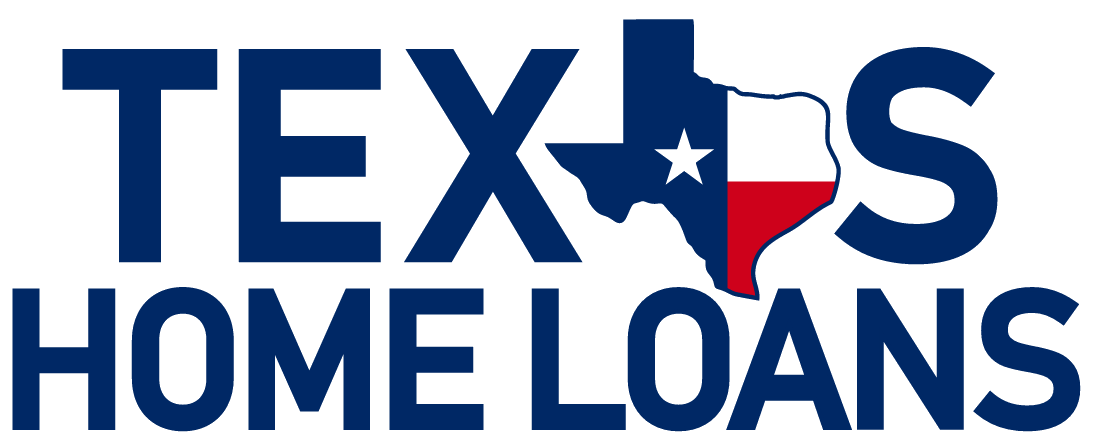https://www.youtube.com/watch?v=ie8N55kVLds Transcript Hello, all my mortgage fanatics out there. Today we're gonna talk about…
FHA Loan Essentials in Texas: A Recap
Buying a home is exciting but involves many decisions. A crucial choice is selecting the right mortgage loan. In Texas, FHA loans are popular among homebuyers for their flexibility and benefits. These loans, backed by the Federal Housing Administration (FHA), aim to assist individuals and families in becoming homeowners, especially those ineligible for traditional financing. If you’re thinking about purchasing a home in Texas and want to explore FHA loans further, this blog offers a detailed overview of FHA loans in Texas. It covers eligibility criteria, advantages, and the application process. Knowing these key points about FHA loans can help you decide if they suit your homebuying journey well.
Understanding FHA Loans in Texas
Before diving into the specifics of FHA loans in Texas, it’s important to have a basic understanding of what FHA loans are. An FHA loan is a government-backed mortgage option that’s insured by the Federal Housing Administration. The FHA was established to improve access to homeownership for individuals and families who may have difficulty qualifying for conventional financing due to factors such as lower credit scores or limited funds for a down payment. FHA loans have more lenient borrower requirements in certain areas, making them an attractive option for many homebuyers in Texas.
The Basics of FHA Loans
To fully grasp the benefits and eligibility requirements of FHA loans in Texas, it’s essential to understand the key components of these loans. The FHA is a government agency that guarantees the repayment of FHA loans, providing lenders with added protection. This guarantee allows mortgage lenders to offer more favorable terms to borrowers, including lower down payments and more lenient credit requirements. FHA loans also require borrowers to pay mortgage insurance premiums, which provide additional protection to lenders in case of default. This insurance helps offset the risk associated with lower down payments and more relaxed credit requirements, making FHA loans a viable option for homebuyers who may not qualify for conventional loans.
Why FHA Loans are Popular in Texas
FHA loans have become increasingly popular among homebuyers in Texas for several reasons. One of the main factors is the more lenient credit score requirements compared to conventional loans. While conventional loans typically require a higher credit score, FHA loans may be accessible to borrowers with lower credit scores. This opens up homeownership opportunities for individuals and families who may have had trouble qualifying for conventional financing. Additionally, FHA loans often offer competitive mortgage rates, making them an attractive option for homebuyers looking to secure affordable financing. The availability of FHA financing also provides more options for borrowers, allowing them to choose the loan that best fits their financial situation and goals.
Eligibility Requirements for FHA Loans in Texas
To qualify for an FHA loan in Texas, there are specific eligibility requirements that borrowers must meet. These requirements ensure that the loan is accessible to those who need it while still maintaining responsible lending practices. The two main areas of eligibility requirements for FHA loans in Texas are the minimum credit score and income requirements, as well as property eligibility. By understanding these requirements, potential homebuyers can determine if they meet the criteria for an FHA loan and proceed with confidence in their homebuying journey. Speak with a mortgage expert to better understand your eligibility.
Minimum Credit Score and Income Requirements
One of the key eligibility requirements for FHA loans in Texas is the minimum credit score. While conventional loans often require higher credit scores, FHA loans can be accessible to borrowers with lower credit scores. The specific minimum credit score required may vary depending on the lender, but generally, a credit score of 580 or higher is recommended to qualify for an FHA loan with a lower down payment. However, borrowers with credit scores between 500 and 579 may still be eligible for an FHA loan with a higher down payment requirement. In addition to credit score, lenders will also assess the borrower’s income and financial situation to determine eligibility for an FHA loan.
Property Eligibility in Texas
In addition to meeting certain borrower requirements, FHA loans in Texas also have specific property eligibility criteria. To qualify for an FHA loan, the property being financed must be the borrower’s primary residence. This means that FHA loans cannot be used to finance investment properties or second homes. The property must meet the minimum standards set by the FHA, ensuring that it is safe, secure, and in good condition. These standards are designed to protect both the borrower and the lender by ensuring that the property is a sound investment. The FHA works closely with lenders and appraisers to determine the property’s eligibility and value, ensuring that borrowers are making a wise investment in their primary residence.
Benefits of Opting for an FHA Loan
Choosing an FHA loan in Texas can provide several benefits for homebuyers. These benefits make FHA loans an attractive option for individuals and families looking to purchase a home. Some of the key advantages of opting for an FHA loan include lower down payments and flexible payment options. FHA loans allow borrowers to finance their home with a down payment as low as 3.5% of the purchase price, making homeownership more accessible for those with limited funds. Additionally, FHA loans offer flexible payment options and may allow borrowers to roll certain closing costs into the loan amount, reducing upfront out-of-pocket expenses.
Lower Down Payments and Flexible Payment Options
One of the most significant benefits of FHA loans in Texas is the lower down payment requirement. Unlike conventional loans that often require a down payment of 20% or more, FHA loans allow borrowers to purchase a home with a down payment as low as 3.5% of the purchase price. This lower down payment requirement makes homeownership more attainable for individuals and families who may not have substantial savings. In addition to the lower down payment, FHA loans also offer flexible payment options. Borrowers may have the option to roll certain closing costs into the loan amount, reducing the upfront expenses associated with purchasing a home. This flexibility can make the homebuying process more manageable and affordable for borrowers.
Accessibility to First Time Home Buyers
First-time homebuyers often face unique challenges when trying to purchase a home. FHA loans can provide a solution for these individuals by offering more lenient requirements and making homeownership more accessible. FHA loans are particularly beneficial for first-time homebuyers who may have limited funds for a down payment or a lower credit score. The lower down payment requirement of an FHA loan allows first-time homebuyers to enter the housing market sooner and with less financial burden. Additionally, FHA loans provide opportunities for these borrowers to establish a positive credit history and build equity in their home. This accessibility and support for first-time homebuyers make FHA loans an attractive option for those looking to achieve homeownership.
Comparing FHA and Conventional Loans
When considering your mortgage options in Texas, it’s essential to compare FHA loans to conventional loans. Both loan types have their advantages and considerations, and understanding the differences can help you make an informed decision. By comparing FHA and conventional loans, you can determine which loan option best suits your financial situation and homeownership goals. This comparison will explore key differences between FHA and conventional loans and help you decide which loan option is the right fit for your needs.
Key Differences and What It Means for You
Understanding the differences between an FHA loan and a conventional mortgage is crucial when considering your home financing options. FHA loans are insured by the Federal Housing Administration, while conventional loans typically require private mortgage insurance if you put down less than 20%. FHA loans have lower credit score requirements, making them accessible to borrowers with lower credit scores. However, FHA loans usually have higher mortgage insurance premiums compared to conventional loans. Knowing these distinctions can help you decide which type of loan aligns best with your financial situation and homeownership goals. Make an informed choice based on your specific needs to ensure a smooth home buying process.
Deciding Which Loan Fits Your Needs
Deciding which loan fits your needs involves weighing various factors like your credit score, financial situation, and homeownership goals. FHA loans, insured by the Federal Housing Administration, often attract borrowers with lower credit scores and less equity. On the other hand, conventional loans typically require higher credit scores but offer more flexibility in terms of property types. Understanding the pros and cons of each, such as mortgage insurance differences, can help you make an informed decision. Consider consulting with mortgage lenders or loan officers to explore different loan products and find the best fit for your specific circumstances.
The FHA Loan Application Process
Once you’ve determined that an FHA loan is the right fit for your homebuying journey in Texas, it’s important to understand the application process. Applying for an FHA loan involves several steps, and being prepared can help streamline the process and increase your chances of approval. This section will outline the general steps involved in the FHA loan application process and provide guidance on how to navigate each step effectively.
Step-by-Step Guide to Applying
Gather your financial documents including income statements and tax returns. Contact an FHA-approved lender to start the application process. Complete the required forms ensuring accuracy to expedite approval. Submit all necessary paperwork for review by the lender. Prepare for a thorough financial assessment including credit history and debt-to-income ratio evaluation. Await the lender’s decision on your FHA loan application with anticipation. Stay in communication with the lender throughout the process to address any potential issues promptly.
Documents Needed for the Application
To complete your FHA loan application in Texas, gather essential documents like proof of income, tax returns, employment verification, and bank statements. Lenders typically request identification, like a driver’s license, and your social security number for credit checks and verification. Additionally, provide details on any outstanding debts or financial obligations. Being prepared with these documents can expedite the approval process and demonstrate your financial stability to lenders. Remember, accurate and complete documentation is crucial for a smooth application process.
Navigating FHA Loan Limits in Texas
Navigating FHA loan limits in Texas is crucial for homebuyers looking to utilize this federal housing administration program. Loan limits vary by county and are determined based on the home’s purchase price. Understanding these limits is essential as they directly impact your buying power. By knowing the FHA loan limit in your area, you can assess the type of property you can afford and plan your budget accordingly. Being aware of these restrictions will help you navigate the home buying process smoothly and efficiently in Texas. Familiarize yourself with the loan limits to make informed decisions and maximize your options within the FHA loan program.
Understanding the Loan Limits
FHA loan limits in Texas are determined by the county where the property is located, impacting the maximum borrowing amount for different property types. These limits are subject to annual changes based on factors like local cost of living and property values. To access county-specific loan limits, individuals can refer to the U.S. Department of Housing and Urban Development (HUD) website or speak with a loan officer for current FHA loan limit details in their area. Familiarity with these limits is essential for establishing the highest loan amount available for a selected property type in Texas.
How They Affect Your Buying Power
FHA loan limits in Texas directly impact your buying power, determining the maximum amount you can borrow. These limits vary by county and are influenced by the home’s purchase price. Understanding these limits is crucial as they can affect your ability to secure your desired property. By knowing the FHA loan limits, you can gauge the range of homes you can consider. If a property exceeds the limit, you may need to explore alternative financing options or adjust your home search criteria. Being aware of how these limits affect your buying power enables you to make informed decisions when navigating the real estate market.
Avoiding Common FHA Loan Mistakes
To ensure a smooth FHA loan process, avoid common pitfalls such as underestimating closing costs and not considering all loan options. As a first-time buyer, be cautious of taking on more debt than you can handle, which may strain your financial situation. It’s essential to stay informed about FHA loan requirements and consult with experienced mortgage lenders to navigate the process successfully. Additionally, be mindful of the property’s eligibility and ensure it meets FHA standards to prevent delays. By understanding these pitfalls and seeking guidance throughout the application, you can secure your FHA loan with confidence and avoid potential setbacks.
Pitfalls to Avoid as a First-Time Buyer
For first-time buyers looking into FHA loans, beware of pitfalls to ensure a smooth process. One common mistake is underestimating closing costs, so budget accordingly to avoid financial strain. Additionally, be cautious of taking on more debt before finalizing your loan, as this could impact your approval. Understanding your financial situation is crucial; ensure your income can support the monthly payments along with other obligations. Lastly, steer clear of skipping the home inspection, as it may reveal hidden issues that could be costly down the road. By being aware of these pitfalls and planning ahead, you can navigate the FHA loan process successfully.
Tips for a Smooth FHA Loan Application
Ensure a smooth FHA loan application process by organizing your financial documentation upfront. Understand and improve your credit score if needed, as it plays a crucial role in loan approval. Stay within your budget to meet debt-to-income (DTI) requirements, optimizing your chances. Communicate clearly with your lender to address any queries promptly, expediting the application. Be prepared for upfront costs like closing fees and mortgage insurance premiums. Research and compare FHA lenders to find the best fit for your needs. Lastly, stay proactive and engaged throughout the application process to ensure a seamless experience. By following these tips, you can increase your chances of a successful FHA loan application.
Frequently Asked Questions
What are the benefits of FHA loans compared to traditional mortgages?
FHA loans offer several benefits compared to traditional mortgages. These include lower credit score requirements, higher debt-to-income ratio allowances, and the ability to make a lower down payment. Additionally, FHA loans have more flexible borrower requirements and offer government-backed insurance through mortgage insurance premiums.
How does the process of applying for an FHA loan differ from other types of mortgages in Texas?
The process of applying for an FHA loan in Texas differs from other types of mortgages in several ways. FHA loans have more lenient borrower requirements, including lower credit score and debt-to-income ratio requirements. Additionally, FHA loans are backed by the government, offer lower interest rates, and can be obtained through FHA-approved lenders rather than traditional banks or credit unions.
Conclusion
FHA loans in Texas are helpful for many home buyers. They have low down payments and are easy to get, making them popular with first-time buyers. Knowing who can apply, the advantages, and how to apply can make getting this loan smoother. To choose wisely between FHA loans and regular mortgages, learn about typical errors to steer clear of. It’s vital to understand the loan limits and how they affect your purchasing ability for a successful home buying experience in Texas with an FHA loan.




